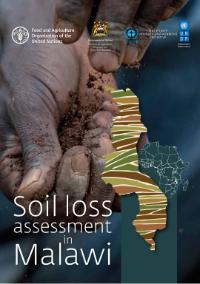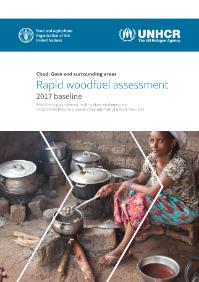Focal point
Location
The Food and Agriculture Organization of the United Nations leads international efforts to defeat hunger. Serving both developed and developing countries, FAO acts as a neutral forum where all nations meet as equals to negotiate agreements and debate policy. FAO is also a source of knowledge and information. We help developing countries and countries in transition modernize and improve agriculture, forestry and fisheries practices and ensure good nutrition for all. Since our founding in 1945, we have focused special attention on developing rural areas, home to 70 percent of the world's poor and hungry people.
Members:
Resources
Displaying 246 - 250 of 5073Land Resources Planning (LRP) Toolbox
The Land Resources Planning (LRP) is a free accessible online “global knowledge hub” for a range of stakeholders and provides technical information on tools and approaches to assist decision makers at different levels to tackle obstacles at policy level and to facilitate the implementation of viable solutions on the ground.
2018年世界森林状况
大约三年前,各国领导人就联合国《2030可持续发展议程》及其17个可持续发展目标达成一致,自此该议程和目标成为指导全球发展政策的核心框架。本版《世界森林状况》旨在加强我们对森林及其可持续经营如何为实现多项可持续发展目标做出贡献的理解。对世界森林而言,时间紧迫:我们必须开展跨部门协作,把利益相关方集合起来,尽快采取行动。《2018年世界森林状况》确定了可采取的行动,以增强森林和树木为加快实现可持续发展目标所必需做出的贡献。现在必须采取措施以更有效地与私有部门合作,必须对非正规部门进行改革,以实现更广泛的经济、社会和环境效益。七十年前,当联合国粮农组织完成其第一次世界森林资源评估的时候,主要关注在于是否有足够的木材来满足全球需求;而现在,我们则认识到森林和树木具有更为显著的全球意义。《2018年世界森林状况》第一次就森林和树木对景观和生计的贡献进行了评估。本报告目的是让更多读者了解森林和树木对人类、地球和子孙后代的重大意义。
Soil loss assessment in Malawi
Soil loss is a major threat to the agricultural development in Malawi and by extension is also a major hindrance to the overall economic development of the country since the Malawian economy is dependent on agriculture. Not only does soil loss reduce the cultivable soil depth but it also takes away the fertile soils from the farmlands. The net effect is loss of agricultural productivity, increased expenditure on fertilizers, and a general decline in profitability of crop production.
Pastoralism in Africa’s drylands
Pastoral livestock production is crucial to the livelihoods and the economy of Africa’s semiarid regions. It developed 7,000 years ago in response to long-tern climate change. It spread throughout Northern Africa as an adaptation to the rapidly changing and increasingly unpredictable arid climate. It is practiced in an area representing 43% of Africa’s land mass in the different regions of Africa, and in some regions it represents the dominant livelihoods system.
Rapid woodfuel assessment 2017 baseline for the area around the city of Goré, Chad
The two waves of refugees from the Central African Republic has provoked one of the most severe humanitarian crises in Central Africa and in the South of Chad. The different camps around the city of Goré host a population of more than 90 000 individuals of which 35% are refugees, 21% are repatriates and 44% are autochthones. This population is dependent on woodfuel for cooking, heating and lighting. This has increased pressure on the environment due to tree felling, wood collection and the conversion of forestland to agricultural land.











